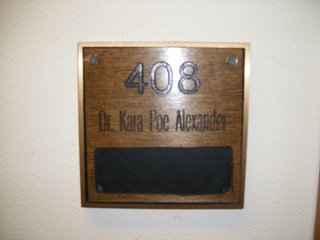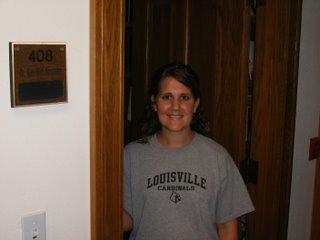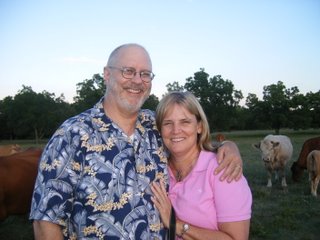I finished the first novel I’ve read since finishing my dissertation in April. I know it seems like a long time not to have read a novel (3 months); it is. But what’s worse is that over the course of my four-year program, I can count on both hands how many books of fiction I read of my own accord. It's not because I don't like to read fictional texts; I really do, although I'm not as avid a reader as others like my mom and sister who always have a book in hand and others waiting in the wing. Rather, the reason I haven’t read a novel in so long is because I was reading so many other kinds of books, books that required extra energy, an attentive eye, and a high level of retention. I had no desire to read other books.
Let me explain a little about how reading requirements in graduate school work. At least in my field, each course required you to read a book a week. And these books were not easy reads. They weren’t literary texts like many think we read in my field; rather, they were books about writing…theoretical books about writing, literacy, postmodernism, research, and the social movement. Heavy, heavy theory (interesting material, but it often overloaded my brain). And all this reading was in addition to reading numerous articles and writing regularly (reader responses, listserv posts, minor papers, and major academic essays). All this reading (and writing) was in addition to teaching two classes a semester, which, to put it in perspective, is how many courses I will be teaching this fall. I do have research/writing requirements, but needless to say, graduate school left little time for pleasure reading. You read what you had to and not much else.
And then came comprehensive exams. I had to take three exams, all of which had separate reading lists upwards of 100 texts each. I had about 6 months to put together these lists and then to read all the texts. Wow. Not much time for pleasure reading, although. I did get to take one exam that focused on a special research area in literature. I chose to read and analyze the literacy activities present in contemporary texts by American women. So, this did allow me to read 46 novels. And they were of my choosing, and I did enjoy them. But they were still for school.
So throughout the course of graduate school (coursework, comprehensive exams, data collection and analysis, and the writing of my dissertation) and my master’s program, which I finished the same month as I started my PhD, I actually lost all desire to read. Ok, ok. I still read, of course. I read about pregnancy, babies, Christianity, marriage, cooking, travel, and other items that interested me or that served practical purposes for specific times in my life, such as having a baby, growing herbs, or looking for a job. This type of reading—information-seeking, shall we say—didn’t require as much energy as it took to get to know new characters, new places, and new authors. So I still read such texts, but I didn’t read the fictional novels that filled booklists and bookshelves and that sat on my shelves accumulating dust and looking forlorn that I would not pick them up.
I felt guilty. I felt that I should still be reading such texts, even though I had little energy left to even scan my bookshelf. I had been influenced by my Victorian England and 19th-Century American ones where reading was equated with moral worth and all good, moral people read. We look down on those who don’t read; we are a culture of “reading snobs.” Even though reading was what I did all the time and I wanted an escape from it, I still felt guilty about my lack of will to read.
I thought I had disliked reading all together and questioned what I was doing getting a PhD in Rhetoric and Composition. If I didn’t read on my own but only read what was required of me in school or when I needed information—more for pragmatic purposes than pleasurable ones—was I a fraud? How could I teach about reading and writing if I didn’t read much outside of the required parameters? The reading snobs and cultural ghosts haunted me, imploring me to pick up a novel and find meaning in the words. But I didn’t do it. I did read The Da Vinci Code and Angels and Demons in the midst of all this, and I’m glad I did. (I highly recommend them both. I read The DaVinci Code in two days (with a six-month-old baby). Angels and Demons started off a little slow for me because it had a lot of scientific, technical, and mathematical concepts, which I don’t understand, but I enjoyed it immensely once I stuck with it. Shane thinks it’s even better than The Code.)
Once I decided to read the book (2 days ago) that I referred to at the beginning of this post, I had it read the very next day. The book, The Sunday Philosophy Club by Alexander McCall Smith, was recommended to me by Judy Seibert whom I met in June when Shane and I were in Abilene for his DMin Orientation. She and I got to talking about books and discovered that we liked several of the same authors, especially Barbara Kingsolver (made uber-famous through Oprah's book club) who wrote The Poisonwood Bible, Pigs in Heaven, The Bean Trees, and other thought-provoking books. Judy recommended Alexander McCall Smith, among other authors, and since I trust her judgment, I read it.
The book was engaging and enjoyable and definitely made me ponder moral questions the book raises (the heroine is a philosopher/academic who reviews and edits a journal, right up my ally). I'll definitely read more by this author.
I’m glad that I have finally emerged from my non-reading days to discover again the wonderful world of fiction. Today I went to the library and checked out some other books that I will read in the coming days. I hope I can learn how to balance reading for work (my job) and reading for fun and pleasure because I don’t want to miss out on all these good books just because I must read the “required” material.
Now, reader, my question for you is: Can you give me any reading suggestions as I re-enter the world of fiction?















